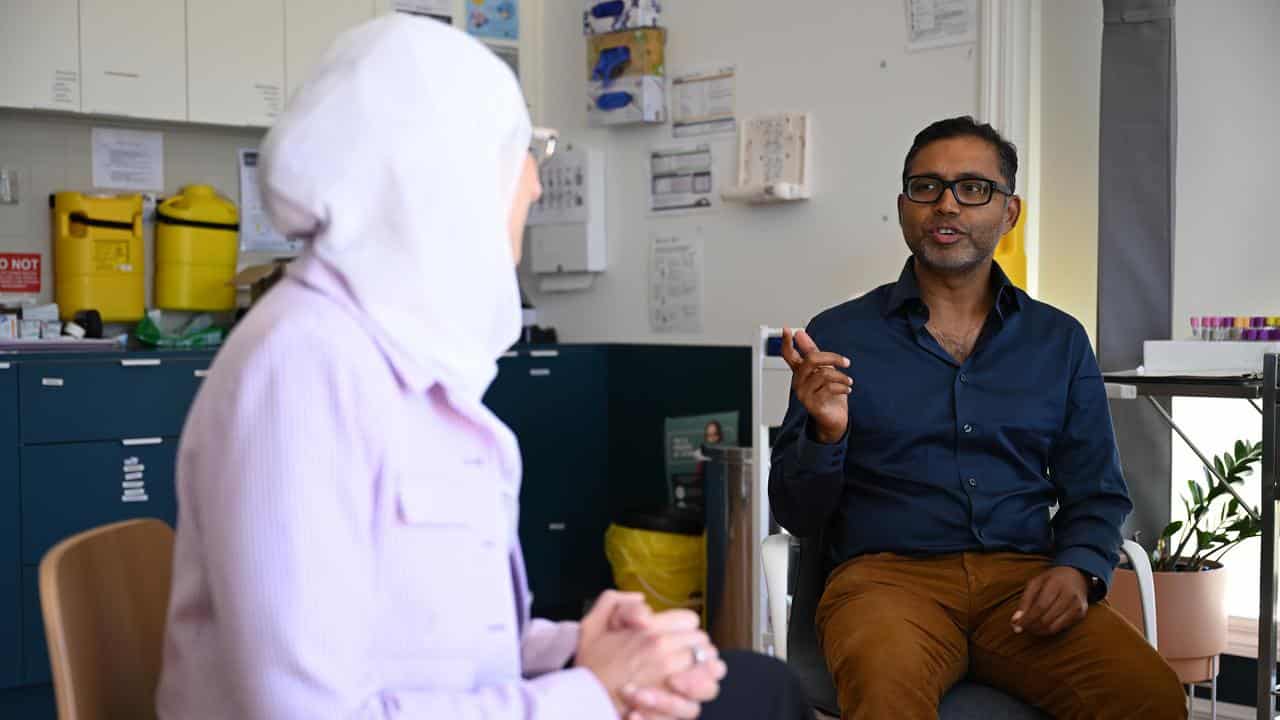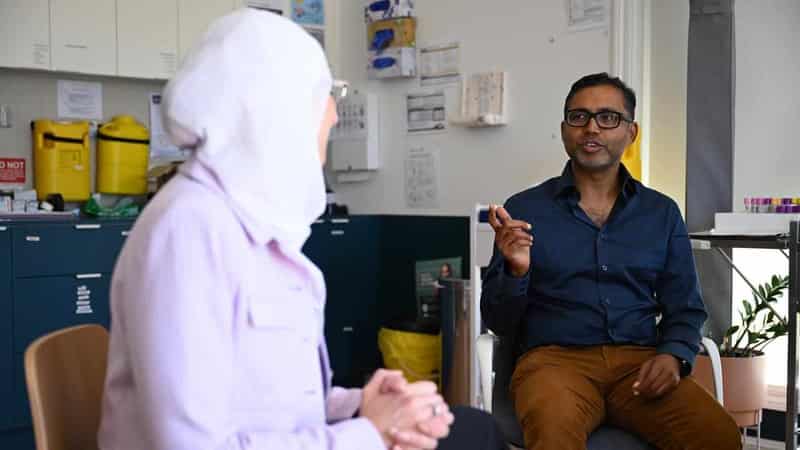
Imam Hossain spent years in hiding as a political activist in Bangladesh but one of his biggest worries nowadays is affording medication for his son Ibrar's ADHD condition.
Mr Hossain sought asylum in Australia in 2019 with his young family, and for eight-year-old Ibrar it has been a tough adjustment period.
"I was a little worried about him because he was hyperactive and I was confused," Mr Hossain told AAP.
"He's feeling lonely because he says 'the other kids don't play with me'. He's trying to cope with this community and society.
"He’s doing better but it takes a bit of time."
An Australian Institute of Health and Welfare report in November found that about nine in 10 refugees had a GP consultation in 2021, with almost all the sessions bulk-billed.
A dedicated refugee children's wellbeing program run at Melbourne's Utopia Refugee and Asylum Seeker Health clinic in partnership with the Werribee Mercy Hospital has seen nearly 185 children in 2024 alone.
"Young people from refugee backgrounds don't understand that when they see the doctor they can come without their parents," said Utopia clinic's founder Dr Lester Mascarenhas.
"They don't understand that when they see the doctor it is confidential ... because they come from a culture and even from a medical system where things are very different."
The one-of-a-kind clinic opened its doors in December 2019, a few months before the coronavirus pandemic hit, with the aim of providing GP services at little or no cost to refugees and asylum seekers regardless of their Medicare status.
Consults at the clinic range from 20-40 minutes, about double the mainstream average, to allow for interpreters from various refugee communities to be present.
The program has been running for about four years with the Mercy Hospital's Dr Dan Mason visiting the clinic regularly.
It was Dr Mason who diagnosed Ibrar, to the relief of Mr Hossain.
The majority of medical issues young refugees present with relate to developmental delay stemming from depression, anxiety, autism and attention-deficit/hyperactivity disorder (ADHD), due to intergenerational trauma and witnessing violence at such a young age.
"We need to do a lot of work on empowering these children who have had very tough backgrounds, poor mental health results as they acquire more of an Australian identity," Dr Mascarenhas said.









